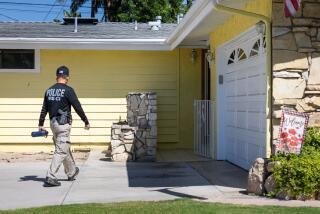O.C. Could Net $1.2 Billion in Suit
Orange County stands to recoup $1.2 billion in the wake of a court ruling that requires the state to repay California counties up to $25 billion in property taxes that have been wrongly shifted to public schools since 1991.
Though Orange County did not join 54 other counties in the lawsuit, local officials are confident it will not be excluded from a payout.
“The bottom line is that it doesn’t matter whether we were a participant or not. If it comes to the state having to pay, the county will be paid. They can’t exclude us,” said Thomas C. Agin, assistant Orange County counsel.
The ruling, made by a Sonoma County Superior Court judge Monday, also includes cities and special districts. The judge ruled against the state as part of a fiscal argument that dates to 1978 when voters froze local taxing authority by passing Proposition 13.
After Proposition 13, the state began supplementing suddenly smaller county budgets with general fund revenues until the state faced a $14-billion shortfall of its own 13 years later.
As a result, the state cut its funding of schools and shifted general fund money to schools to make up for the reduction. But that left counties a leaner share of less predictable property tax revenues--especially as California headed into a long real estate-fueled recession.
“This is good news for counties. However, we expect it to take some time because the state will appeal,” said Gary Burton, Orange County’s chief financial officer.
Burton’s estimate of $1.2 billion owed the county includes money shifted from library districts, flood control, Harbors, Beaches and Parks and other county-managed special districts.
“We know that Orange County was one of the four that didn’t join our lawsuit, but that doesn’t exclude them,” said Pat Leary, a lobbyist for the California State Assn. of Counties.
Every county, city and special district affected by the tax shift will be able to make claims against the state regardless of whether they participated in the lawsuit, Leary said. Although the lawsuit covered claims totaling $14 billion, the total amount all counties and special districts could obtain would come to $25 billion, she said.
In addition to Orange County, the other counties that didn’t join the lawsuit were Santa Clara, San Francisco and Modoc.
Originally, Orange County supervisors voted in 1993 to join a coalition protesting the tax shift because the county expected to lose more than $150 million a year. But the board’s then chairwoman, Harriett M. Wieder, refused to act on the resolution.
At the time, Wieder had expressed fear of retaliation by the Legislature.
But county officials who did not wish to be identified said Tuesday the real reason was political. “The board didn’t want to join a lawsuit against a Republican administration,” one official said.
The county’s total contribution to the state’s general fund from sales and income taxes is second only to Los Angeles County. Yet the county is among the lowest of the 58 counties in per capita assistance from the state for all purposes.
It receives only 6% of the property taxes it turns over to the state, well below the state average of 19%. A bill passed into law in July without the governor’s signature requires the state legislative analyst to come up with two alternative plans by Dec. 31 for reallocating property taxes. The law was sponsored by Assemblywoman Marilyn Brewer (R-Newport Beach).
One of the hardest-hit divisions from the state’s shift in taxes was the county’s Harbors, Beaches and Parks operation. Supervisors approved taking $4.5 million a year from the parks budget, about 12% of the division’s budget. After the 1994 bankruptcy, supervisors diverted an additional $4 million in 1996 and for each of the next 20 years to help pay for the county’s bankruptcy debt.
More to Read
Sign up for Essential California
The most important California stories and recommendations in your inbox every morning.
You may occasionally receive promotional content from the Los Angeles Times.










